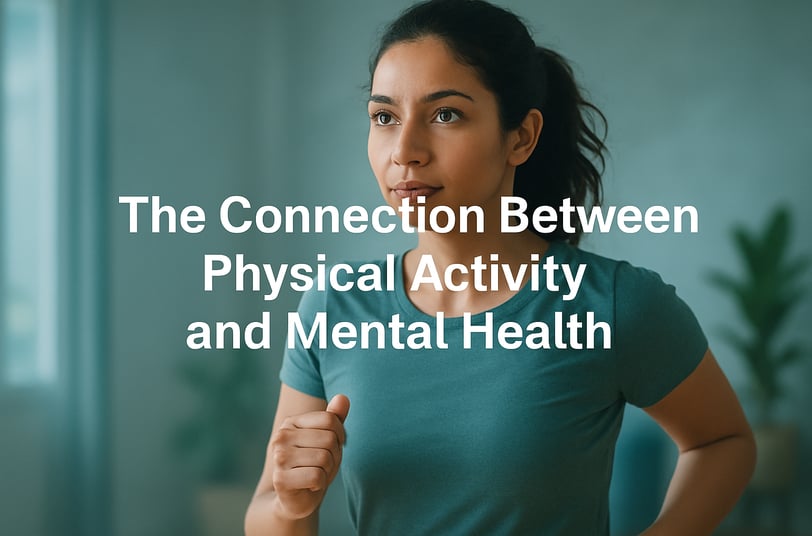The Powerful Link Between Physical Activity and Mental Health: Backed by Science
Discover how regular exercise improves mental health, boosts mood, and enhances sleep. Learn practical tips, science-backed benefits, and top Amazon tools to help you stay consistent and feel better every day.
5/31/20252 min read


The Connection Between Physical Activity and Mental Health
Mental health and physical fitness are often treated as separate goals, but research shows they're deeply connected. Movement isn’t just about sculpting your body — it can literally rewire your brain, calm your nerves, and elevate your mood. Whether you're dealing with anxiety, burnout, or just need more energy, physical activity is one of the most effective tools available. And best of all? It doesn’t require a prescription — just some commitment and consistency.
How Exercise Impacts Your Brain
Physical activity triggers the release of feel-good chemicals like endorphins and dopamine, which naturally lift your mood. According to a 2018 meta-analysis published in The Lancet Psychiatry, people who exercise regularly report fewer days of poor mental health compared to those who don’t. Even moderate movement like brisk walking or bodyweight workouts can reduce symptoms of anxiety and depression.
Exercise also affects the brain’s structure. Aerobic activity increases hippocampal volume — the region associated with memory and emotion regulation. This helps explain why consistent movement improves focus, emotional resilience, and cognitive clarity.
-Backed by research: The Harvard T.H. Chan School of Public Health notes that walking for an hour a day can cut depression risk by 26%. (source)
The Sleep-Movement Loop
Sleep and exercise go hand in hand. Better workouts lead to better sleep quality, which improves mental clarity, lowers cortisol levels, and resets your emotional regulation. If you’re having trouble winding down, physical activity — especially earlier in the day — can help you fall asleep faster and stay asleep longer.
Fitbit Inspire 3
Lightweight tracker with sleep, stress, and heart rate monitoring. Great for staying consistent and seeing how movement impacts your recovery View on Amazon.
Movement for Stress Relief
Exercise isn’t just about intensity — it’s about consistency. Low-impact activities like walking, yoga, or even 10-minute stretch sessions can reduce tension in the body and regulate breathing, helping your parasympathetic nervous system kick in (that’s your “rest and digest” mode). This makes movement a powerful buffer against daily stressors.
If you often feel “wired but tired,” that’s a sign your nervous system needs a reset — not more hustle. Controlled physical activity helps bring your baseline stress levels down, so you can approach challenges with a clearer mind.
ProsourceFit Extra Thick Yoga Mat
Extra cushioning makes it perfect for floor work or mindfulness sessions. Durable, non-slip, and easy on joints during longer stretches View on Amazon.
Creating an Active Routine You’ll Stick To
You don’t need to hit the gym every day to reap the mental benefits. Consistency beats intensity when it comes to mood and mental clarity. Start by walking 10–15 minutes after meals, using resistance bands a few times a week, or stacking mobility into your morning routine. The goal is movement, not perfection.
Whatafit Resistance Bands Set
Color-coded bands with handles and anchors. Ideal for home workouts and travel — compact but super effective for daily use View on Amazon.
Final Take
When it comes to mental health, movement is medicine — but it has to be sustainable. You don’t need a personal trainer or perfect routine. You just need to move your body with intention. The more consistent you are, the more mental clarity, emotional resilience, and energy you’ll start to notice. Whether it's tracking your steps, flowing through yoga, or pulling a resistance band between sets, every rep counts toward a stronger, more centered version of yourself.
FITNESS
Nutrition
WellnesS
info@movebetterco.com
© 2025. All rights reserved | Privacy Policy | Terms & Conditions